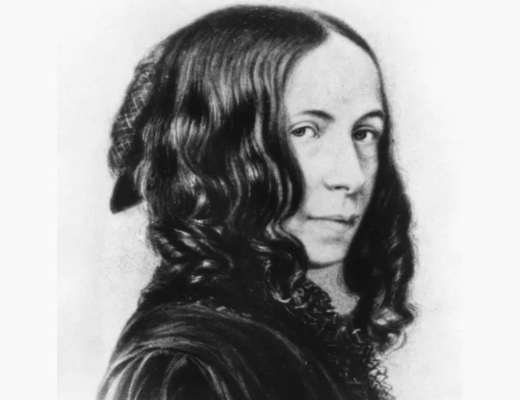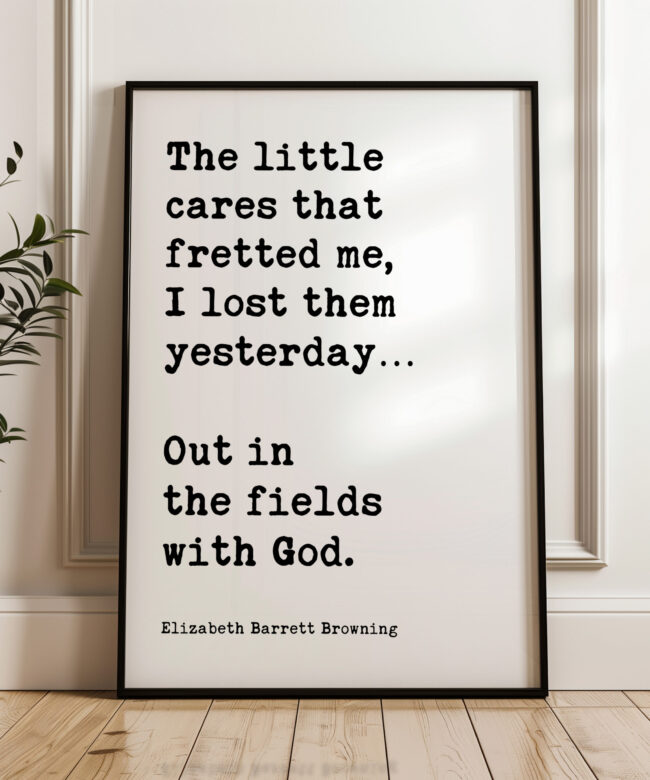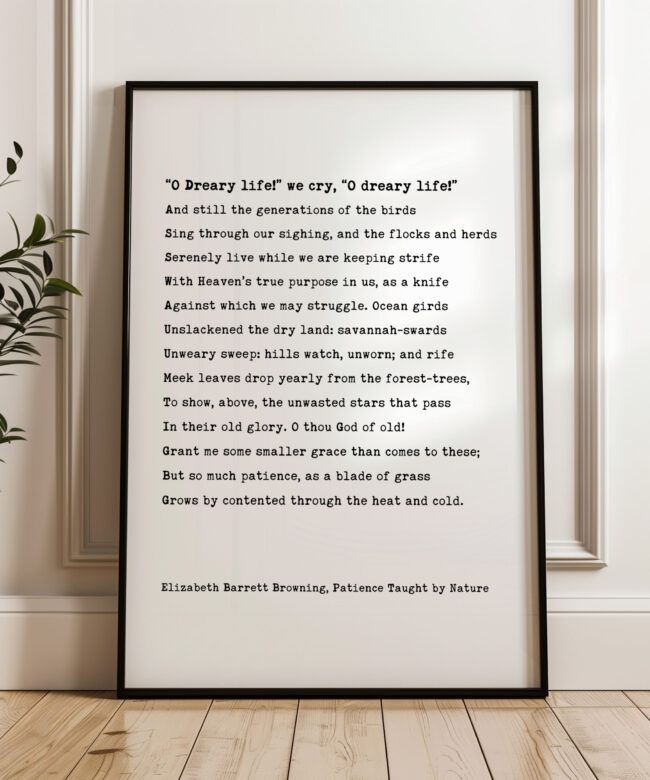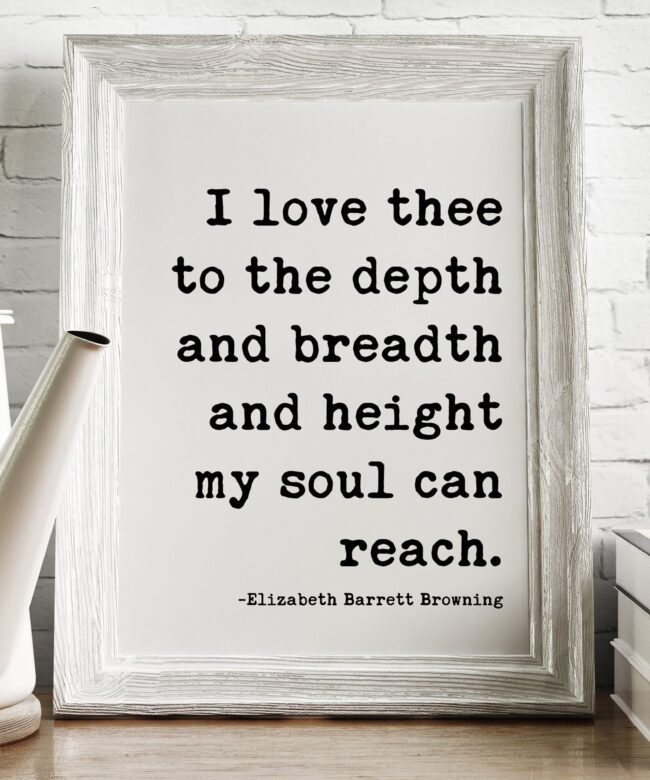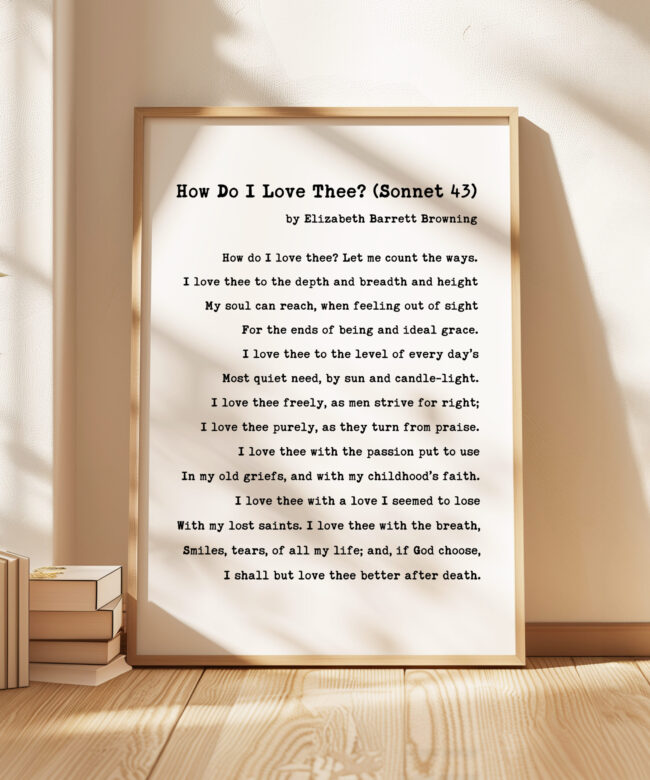Elizabeth Barrett Browning: The Poet Who Defied Convention
Introduction
Elizabeth Barrett Browning (1806–1861) remains one of the most influential poets of the Victorian era. Known for her passionate love poetry, feminist ideals, and social activism, she crafted works that transcended the constraints of her time. From her dramatic personal life to her literary achievements, her story is one of resilience, love, and artistic brilliance—one that continues to inspire modern audiences.
Biography: A Life of Struggle and Triumph
Early Life and Prodigy Beginnings
Elizabeth Barrett was born on March 6, 1806, in Durham, England, into a wealthy family. The eldest of twelve children, she was a precocious child who began writing poetry at the age of six. By her early teens, she had read Shakespeare, Milton, and classical Greek literature in its original language—an extraordinary feat for a girl in the 19th century.
Her father, Edward Barrett Moulton Barrett, encouraged her education but was also domineering, forbidding his children from marrying—a rule that would later lead to one of literature’s greatest love stories.
Chronic Illness and Seclusion
At 15, Elizabeth suffered a spinal injury, and later, a lung condition (possibly tuberculosis or chronic fatigue syndrome) left her weak and frequently bedridden. Despite her frailty, she continued writing, publishing her first collection, The Battle of Marathon, at 14 (privately printed by her father).
Tragedy struck in 1840 when her beloved brother Edward drowned in a sailing accident. Grief-stricken, she became a near-recluse in her London home, focusing entirely on her poetry.
A Forbidden Love Story
In 1845, fellow poet Robert Browning wrote her a fan letter, declaring: “I love your verses with all my heart, dear Miss Barrett.” Their correspondence blossomed into a secret romance, despite her father’s tyrannical opposition to his children marrying.
In 1846, the couple eloped and fled to Italy, where Elizabeth’s health improved. They settled in Florence, had a son (Pen), and lived happily until her death in 1861.
Interesting Facts About Elizabeth Barrett Browning
-
She was a political radical, supporting Italian unification and abolition.
-
Her dog, Flush, was famously kidnapped three times (and ransomed). Virginia Woolf later wrote a biography from the dog’s perspective.
-
She wrote in secret as a child because her family disapproved of her passion.
-
She was the first woman ever considered for the title of Poet Laureate (though the honor went to Tennyson).
-
She influenced the spiritualist movement—after her death, Robert Browning reportedly attended séances hoping to communicate with her.
Most Famous Works
1. Sonnets from the Portuguese (1850)
A masterpiece of love poetry, this collection was written for Robert Browning. The title refers to his affectionate nickname for her (“my little Portuguese”). The most famous sonnet, “How do I love thee? Let me count the ways” (Sonnet 43), remains one of the most quoted love poems in history.
2. Aurora Leigh (1856)
A novel-length verse narrative, this revolutionary work follows a woman’s journey as a poet and her struggles for independence in a patriarchal society. It boldly addresses gender inequality, art, and social justice.
3. “The Cry of the Children” (1843)
A searing indictment of child labor, this poem exposed the brutal conditions of factory work and helped fuel reform movements. Lines like “The young lambs are bleating in the meadows, / The young birds are chirping in the nest” contrast sharply with the suffering of working children.
4. Casa Guidi Windows (1851)
Inspired by her life in Florence, this poem reflects her support for Italian independence from Austrian rule, blending personal observation with political commentary.
Elizabeth Barrett Browning in Pop Culture
Though she lived in the 19th century, Barrett Browning’s legacy endures in modern media:
Film & Television
-
The Barretts of Wimpole Street (1934 & 1957) – A romanticized film about her courtship with Robert Browning, starring Norma Shearer and Fredric March (1934) and Jennifer Jones and Bill Travers (1957).
-
BBC’s Flush (1998) – A TV adaptation of Virginia Woolf’s playful biography of Elizabeth’s dog.
Literature & Music
-
Virginia Woolf’s Flush: A Biography (1933) – A satirical biography written from the perspective of Elizabeth’s cocker spaniel.
-
Songs & References – Indie band The Magnetic Fields references her in “The Book of Love,” and her poetry has been set to music by composers like Samuel Barber.
Modern Adaptations & Tributes
-
Podcasts & Documentaries – She’s been featured in historical podcasts like The History Chicks and Stuff You Missed in History Class.
-
Feminist Icon – Contemporary writers like Margaret Atwood and Adrienne Rich have cited her as an influence.
Legacy: A Lasting Influence
Elizabeth Barrett Browning broke barriers as a woman writer, addressing themes of love, justice, and freedom in ways that were ahead of her time. Her work influenced later poets like Emily Dickinson and Virginia Woolf, and her life story—marked by defiance, love, and artistic courage—continues to inspire.
“Earth’s crammed with heaven, / And every common bush afire with God.”
— Aurora Leigh
Shop for items featuring Elizabeth Barrett Browning Poems and Quotes.

